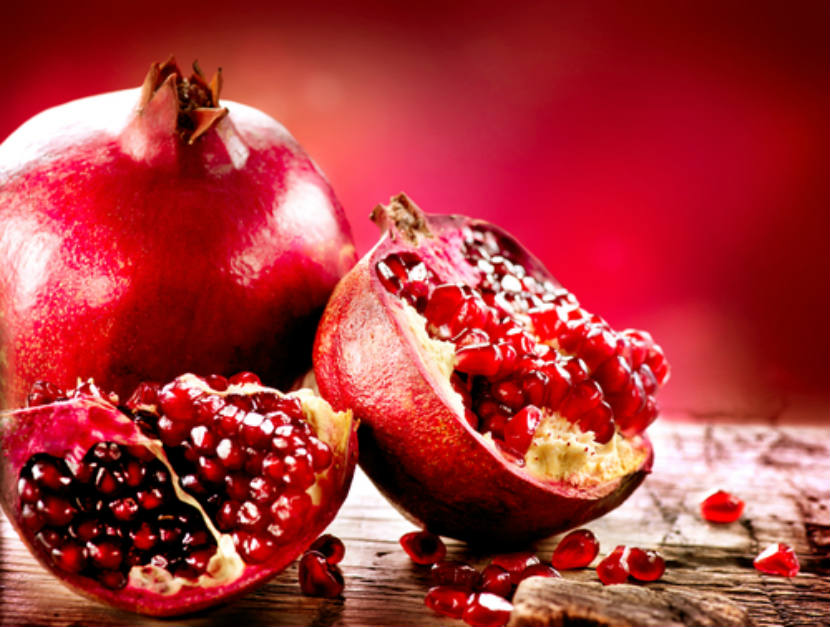
Pomegranates are fruits, which are part of a healthy diet. Half a pomegranate is one Food Guide serving of Vegetables and Fruit and has 14 grams of carbohydrate and 3 grams of fibre. Half a cup (125 mL or 4 oz) of pomegranate juice also counts as a Food Guide serving.
Health benefits of pomegranates
Like other fruits, pomegranates have antioxidants. Although pomegranates have general health benefits, more research is needed before pomegranates or its juice can be recommended to help any specific conditions like high blood pressure, high cholesterol or diabetes. There is no evidence that shows pomegranate juice can prevent or treat prostate cancer, or help with erectile dysfunction.
What about pomegranate supplements?
Pomegranate supplements are usually sold in capsule, powder or concentrated liquid form. Concentrated liquid pomegranate is different than pomegranate juice. More research is needed before recommending pomegranate supplements.
Buying and storing pomegranates
-
Choose pomegranates that feel heavy for their size and have no major marks on their skin. Heaviness means more juice inside.
-
Pomegranates can be kept in a cool, dry place for up to one month or refrigerated for up to two months.
-
The seeds can be refrigerated in a sealed container for up to two weeks, or in the freezer for several months.
How to open a pomegranate
This tropical fruit is packed with delicious ruby red seeds. The outer skin and the inner membrane are not eaten. Cut a quarter inch off the top. Cut the pomegranate skin into quarters, pull apart each section and pop the seeds out. You can pop the seeds out into a bowl of cold water. This cuts down on any juice being squirted onto your clothes.
Five ways to enjoy pomegranate seeds
-
Scatter over salads
-
Layer into a yogurt parfait
-
Sprinkle over oatmeal or cereal
-
Pair with olives
-
Sprinkle over crackers and cheese
Last Update – November 28, 2017